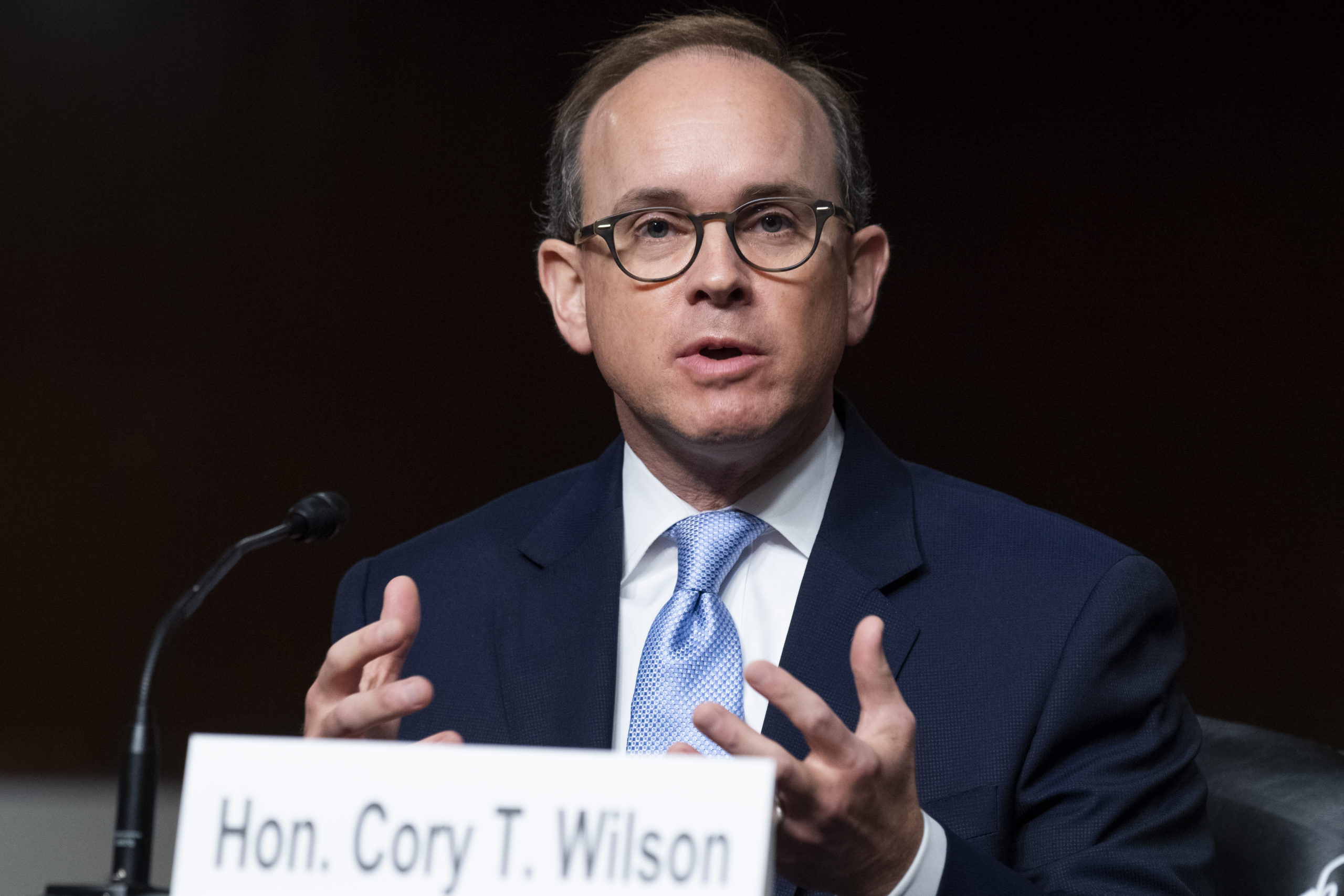Anti-LGBT+ judge who backed ‘most homophobic bill in US history’ moves one step closer to lifetime seat on court of appeals

Cory Wilson testifies at his Senate Judiciary Committee confirmation hearing in on May 20, 2020. (Tom Williams/CQ-Roll Call, Inc/ Getty)
Republicans have moved a step closer to the lifetime appointment of judicial nominee Cory Wilson, a man who could potentially set LGBT+ rights back decades.
Wilson is Donald Trump’s latest nominee to the 5th US Circuit Court of Appeals, and appears to have been nominated in part for his fierce hostility to LGBT+ rights, abortion rights and voting rights.
On Wednesday the Senate Judiciary Committee held a hearing to question the Mississippi state judge on his past partisan remarks, and they certainly had a lot to work with.
In 2012 he strongly opposed same-sex marriage, describing it as “a pander to liberal interest groups and an attempt to cast Republicans as intolerant, uncaring and even bigoted.”
Later in 2016, he voted for what has been dubbed the “most homophobic bill in US history” – bill 1523, which allows businesses to refuse service to same-sex couples, people who have sex outside of marriage and transgender people on the basis of religious freedom.
And he shockingly said he supported “the complete and immediate reversal of Roe v Wade” in a 2007 Mississippi Right to Life questionnaire.
“In light of your record of making controversial statements and taking extreme positions, the question is really whether these views will seep into your decisions as a 5th Circuit judge,” said Hawaiian senator Mazie Hirono, running through Wilson’s positions on all of those issues.
“Common sense would say, yes indeed, these views will seep into your decision-making as a judge. And that is why you are being nominated.”
As the hearing ran through Wilson’s positions on previous human rights issues, much of the Democrats’ questioning focused on Wilson’s derisive opinion of Affordable Care Act (commonly known as ‘Obamacare’).
“Did you call the passage of the Affordable Care Act ‘perverse’ and ‘illegitimate’ and say that (you) ‘hope the court’ — you meant the Supreme Court — ‘strikes down the law?'” Hirono asked.
When Wilson refused to address the question, Hirono answered for him: “The answer is yes.”
Asked whether the current national health emergency that has left millions of Americans unemployed and without health insurance had given him “a moment of pause” to consider his past statements, Wilson again deflected the question.
Unsurprisingly, the Republicans led a far softer line of questioning, with Ted Cruz asking the nominee: “What’s the difference between being a legislator and being an appellate judge?”
And Marsha Blackburn hit him with: “When you had students in your classroom, how did you talk to them about being a fair and impartial judge?”
Cory Wilson now awaits his vote out of the committee and on to the Senate floor, and with little opposition from Republicans he is, unfortunately, is all but certain to be confirmed.


